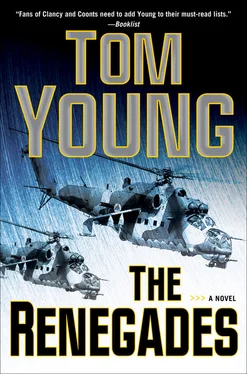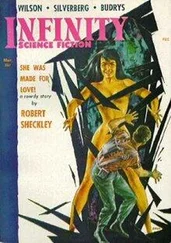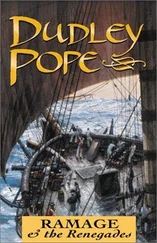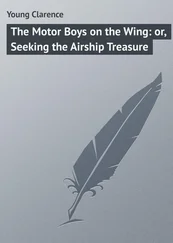The Cougar lurched through a gully. Parson braced himself against the vehicle’s pitch and roll, thought of roadside bombs. But no boom came; it was just a lousy road. He’d heard somewhere that Chechen and Uzbek jihadists were especially skilled at building IEDs. No doubt some of them were plying their trade in Afghanistan right now. Gold and the Marines showed no reaction to the Cougar’s bouncing. Unfortunately, he thought, they knew the difference between hitting a rut and hitting a bomb.
He looked outside through the louvered window. Morning mist clung to a hillside, but above the hill the sky was clear. Two specks appeared on the horizon. As they grew larger, Parson recognized them as a formation of C-17 Globemasters. They flew low, but not on a course for landing at Mazar. An airdrop run, then.
Their heading took them on a path diagonal to the road, drawing nearer. Now Parson could make out their cargo ramps coming open. From inside both aircraft, pilot chutes blossomed, and then an object slid out of each jet. Twin pairs of main chutes unfurled above the objects. Probably some kind of heavy equipment airdrop. Not the way you’d usually drop relief supplies. By airlift standards, food didn’t weigh much. This drop was artillery pieces or ammunition, maybe. Crews with a different mission, different problems. Parson turned away from the window before the loads hit the ground. He had his own mission to consider.
The MRAP vehicles rolled past barren rock, terraced fields, stony hills. Gold and the Marines rode quietly, perhaps considering what might await them. From the start, Parson had wondered if they were driving into an ambush. But he trusted Gold’s instincts; she knew about these Afghan villagers. And even if you were a villager who hated Americans, Parson thought, you probably wouldn’t set up an ambush if the Americans knew where you lived. He clung to that hope as the vehicles stopped about half a mile from the village.
Blount opened his door, scanned the compound with binoculars. The Cougar’s ramp clanged open, and Gold climbed down to look toward the village. She shaded her eyes with her hand. Blount gave her the binoculars. Gold looked through them for a minute, handed them back.
“What do you think, Sergeant Major?” Blount asked. “I don’t see any muj.”
“Looks just like it did a couple days ago,” Gold said. Then she looked at Parson. “Sir?”
Parson borrowed Blount’s binoculars, looked for himself. The homes resembled every other mud-brick and stone compound in Afghanistan. He saw no movement, no telltale glints of metal, nothing to suggest hidden jihadists. That didn’t mean they weren’t there, but Gold seemed satisfied. She was just deferring to his rank.
“Let’s go visit the neighbors,” Parson said.
The Cougars moved into position so their guns could cover the village. Gold knew those weapons wouldn’t do her and the Lionesses much good if this meeting went badly. But her gut told her not to worry about that.
She stepped down the vehicle’s ramp. As before, Ann and Lyndsey held back. Gold wanted to see what kind of reception she got before bringing anyone else inside.
The same white Taliban flag hung from the home of Durrani’s wife. Last time, the flag had fluttered in the high wind, but now it swayed gently in a lighter breeze. None of the villagers appeared outside. A goat tied to a pistachio tree eyed Gold as she walked toward the door. In the distance, a rooster crowed.
Her confidence grew with every step. If men with RPGs and rifles lurked inside the homes, she’d be dead already. In the mathematics of military doctrine, threat equaled capability plus intent. Durrani and his associates certainly had the capability of setting up an ambush. So it appeared, at least for now, they did not have the intent.
Gold knocked at the door. The smell of cooking wafted from inside; she took that as another good omen.
“Good morning, my sisters,” she said in Pashto. “It is Sergeant Major Gold.”
Women’s voices muttered in Pashto, crockery rattled, and the door swung open. Durrani’s wife stood at the threshold in her blue burka. Gold recognized the crow’s-feet around her eyes.
“ Salaam , American,” the woman said.
Gold wondered if the woman had ever put those two words in the same sentence. “Assalamu alaikum,” she said. She waved to the MRAPs, motioned for Ann and Lyndsey to join her. Parson watched from the open ramp, Beretta in hand. So he was in full protective mode now. The attack dog side of him. I know what I’m doing, Michael, she thought. Trust me—and don’t point that gun at the house.
The Lionesses joined Gold at the doorway, sunglasses off, rifles left behind. They nodded greetings to the Durrani matron. Gold liked the way they worked. Certainly the United States had done some dumb things in Afghanistan, but creating these female engagement teams was brilliant. She remembered the original memo on the Lioness project. Under the heading of UNCLASSIFIED/FOR OFFICIAL USE ONLY, the memo outlined the concept and its execution. The best-qualified women volunteers would get briefings on counterinsurgency and Afghan culture. By law, they could not be assigned to combat units. So they weren’t assigned ; they were attached . In war, you did what you had to do.
“Come inside,” the matron said. “My daughters and I hope you will join us later for our midday meal.”
“That is very kind of you,” Gold said. “We shall.” Though Gold had not expected the worst, this kind of hospitality surprised her. Apparently she still had things to learn about Muslim attitudes toward strangers and travelers. And if this woman thought of her as a traveler instead of an enemy, that represented progress. The war had brought so many setbacks, so many disappointments. If now it presented an opportunity, Gold didn’t want to waste it.
She entered the home with Ann and Lyndsey, sat with the woman on her jute rugs. The two daughters tended cooking at the hearth. One of them bent to a low table and began cutting potatoes. She dropped the potato slices by the handful into an iron pot suspended over the fire.
Whatever the women used to season the food—peppers, maybe—gave the room a pleasant smell, but the fire made the house uncomfortably warm. Gold removed her helmet and gloves. From a cargo pocket on her trousers she took a brown desert scarf. She folded the Army-issued cloth into a hijab and tied it over her hair. Sweat still beaded on her face, but the scarf felt a little cooler than the Kevlar helmet.
“You came for an answer,” the wife said. “My husband will see you.”
Gold smiled, took a deep whiff of the potatoes and peppers. She had begun to wonder if this whole thing was diwana . Crazy.
“I am more grateful than I can express,” Gold said. Then she added, in English to Ann and Lyndsey, “Yes.” The younger women said thank you in Pashto. They didn’t know enough of the language to say much else.
“He requires that you visit him alone,” the matron said. “You must bring no soldiers, no weapons.”
Gold’s smile faded. Of course there was a catch. This was Afghanistan, where nothing came easily. The Army, the Air Force, Parson, the whole chain of command would never let her go alone to a meeting with a Taliban cleric. Suicide, they’d say. So getting her hopes up really had been diwana .
She tried to mask her disappointment. At least she could share a meal with this woman, make a village contact.
“Your help is most gracious,” Gold said, “but I must be honest. My superiors will not likely allow me to attend this meeting alone.”
“I thought as much,” the woman said. “But this condition is not negotiable.”
Читать дальше












